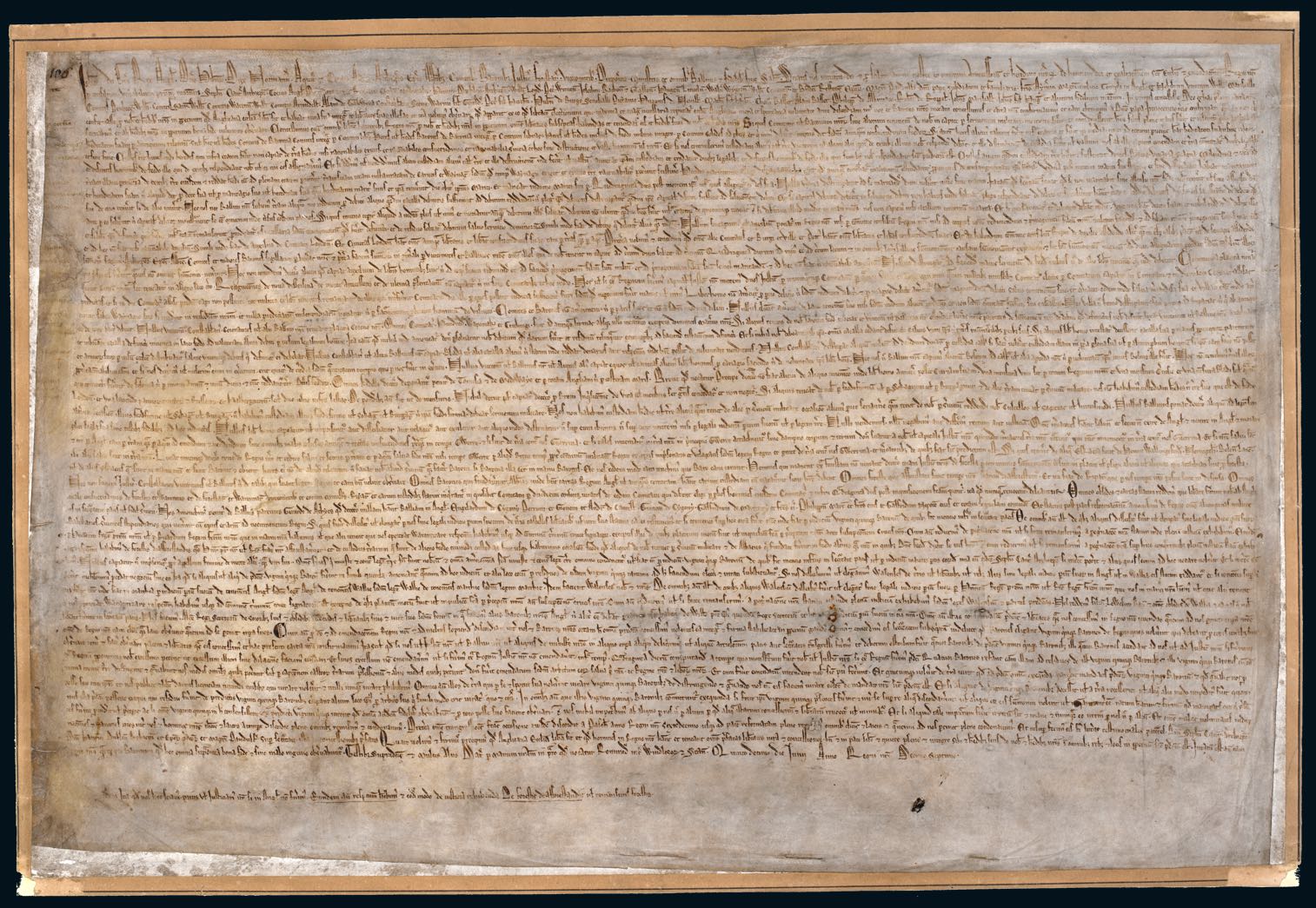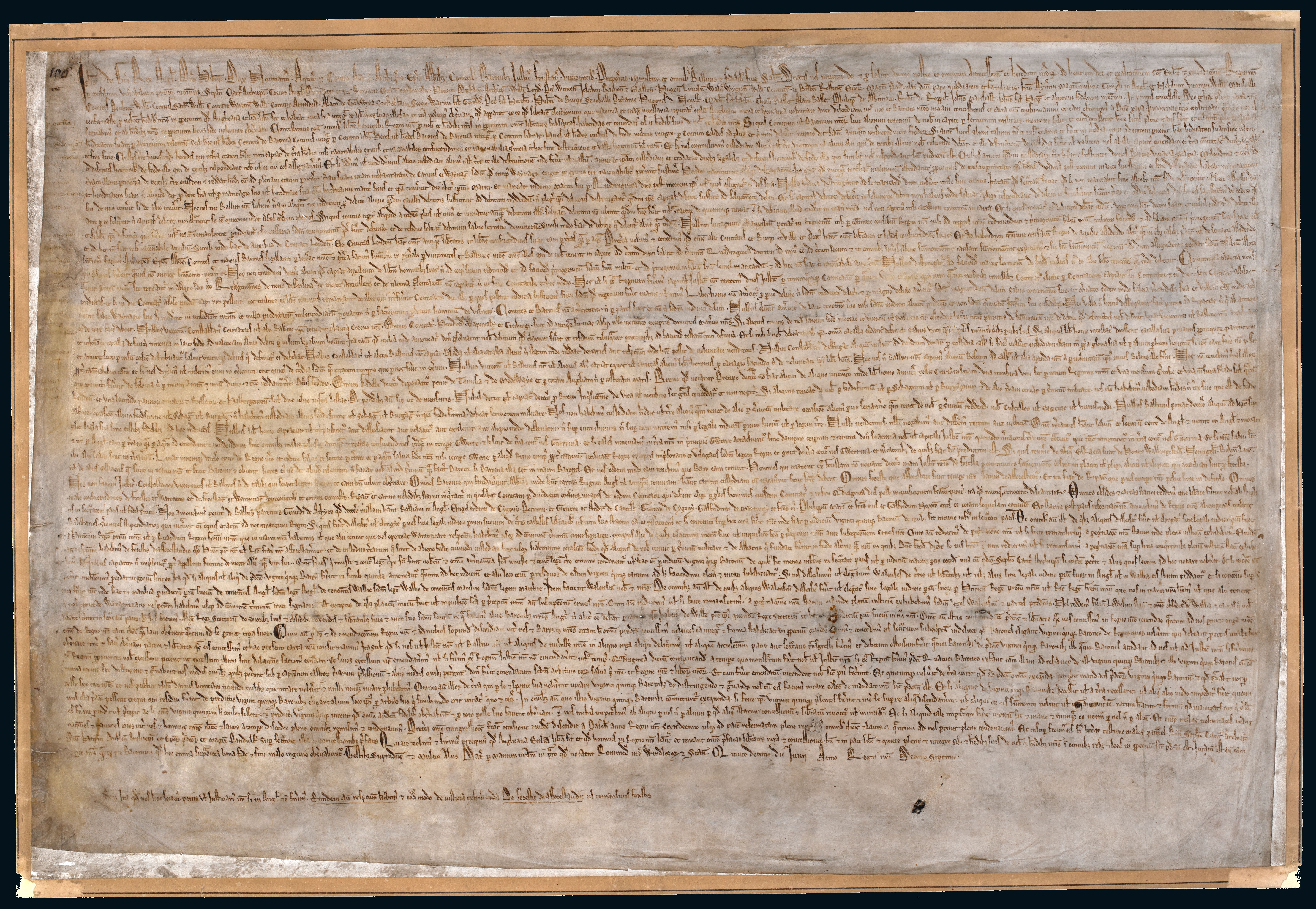
Omnes male consuetudines de forestis et warennis et de forestariis et warennariis, vicecomitibus, et eorum ministris, ripariis et earum custodibus, statim inquirantur in quolibet comitatu per duodecim milites iuratos de eodem comitatu qui debent eligi per probos homines eiusdem comitatus, et infra quadraginta dies post inquisitionem factam, penitus, ita quod numquam revocentur, deleantur per eosdem, ita quod nos hoc sciamus prius, vel justiciarius noster, si in Anglia non fuerimus.
All evil customs relating to forests and warrens, foresters, warreners, sheriffs and their servants, or river-banks and their wardens, are at once to be investigated in every county by twelve sworn knights of the county, and within forty days of their enquiry the evil customs are to be abolished completely and irrevocably. But we, or our chief justice if we are not in England, are first to be informed.
